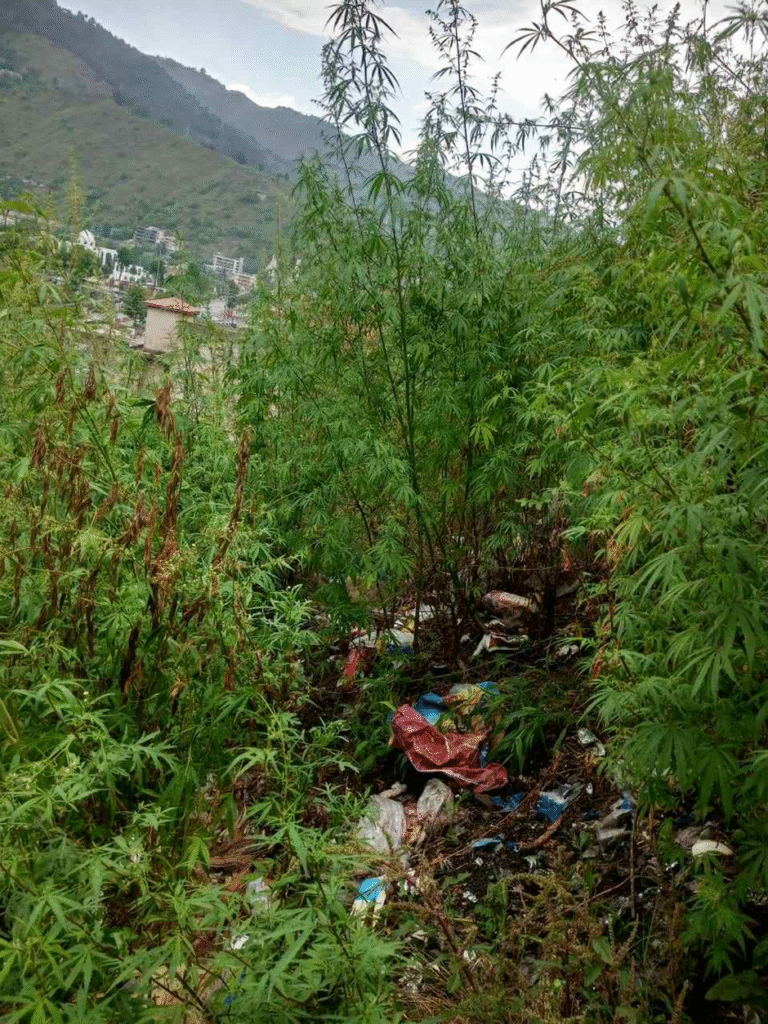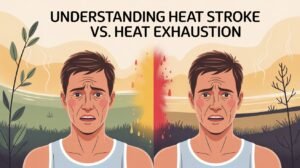Azad Jammu and Kashmir is a sight to behold, having snow-covered peaks, rushing rivers, and green meadows that feel like a breath of fresh hope. But step a little closer, and the beauty fades. The harsh reality of plastic waste ruining the natural beauty of mountains and choking our water bodies. Despite a ban on polythene bags in 2024, Muzaffarabad finds itself drowning in plastic, trapped in a cycle with no real solution for collection or management from the local administration.

Rivers here are not just beautiful; they are lifelines for drinking, farming, and survival. Yet, instead of flowing freely, they have become dumping grounds. “Our rivers used to be our pride,” says Amina, a resident of a village. “Now, they carry more plastic than water.”
Plastic does not just disappear; it breaks down into microplastics that contaminate our water, harm fish, and ultimately affect the people who rely on these resources. Studies show that people can ingest up to 52,000 microplastic particles each year, mostly from polluted water. “We can’t see them, but they are in every drop we drink,” says Zeeshan Malik, a lecturer from AJK University.

With no proper waste collection, burning plastic has become an easy solution for all residents. However, this approach carries significant risks. “It may seem easier to burn the plastic,” explains Faraz, a local shopkeeper, “but I’m concerned about my children inhaling those fumes.” Burning plastic releases dioxins, which are among the most toxic substances known and are associated with cancer and birth defects. Alarmingly, 12% of global dioxin emissions result from this method. Each fire poses a gradual threat to the health of children in Muzaffarabad.
The AJK Plastic Bag Regulation 2023 exists, but in reality, it feels like a distant promise. Walk through Muzaffarabad’s busy markets, and you’ll see little has changed. “The law is just words on paper,” complains Sara, a local climate activist. “There’s no enforcement, no alternatives. Traders still stockpile bags, and customers carry them home without a second thought.” The community feels trapped in a cycle of waste, with no dustbins or waste collection mechanisms in the city.
Animals, too, are victims of this crisis. They don’t understand the harmful consequences of plastic. Instead, they eat it, filling their stomachs with waste and starving slowly. Stray cows, goats, and birds roam the streets, unaware of the toxins that threaten their lives. “I often see cows digging through garbage,” says Ahmed, a resident of Upper Chatter. “It breaks my heart to think they don’t know what they’re eating.”
The situation is dire, with no scientific waste collection in operation. There’s no segregation, no recycling, and a proposed Rs. 3.15 billion Solid Waste Management Plan remains unimplemented. “We’ve been waiting for change for too long,” says Rania, a local teacher. “Until then, our trash piles up, digging into the forests, and washes into the rivers.”

The Mayor of the Municipal Corporation of Muzaffarabad reports that approximately 50 to 55 tons of garbage are collected daily in the province, which is managed through the waste disposal system. The Solid Waste Collection department employs 169 individuals, including supervisors, staff, and drivers. For the transportation and disposal of waste, the department utilizes eight dumper trucks, six tractors, three bucket tractors, one Suzuki vehicle, and one wheel loader.

In light of our limited resources, we are seeking additional funds to install dustbins in public places throughout the city. The government has recently announced a grant of Rs. 7.2 million for the Municipal Corporation of Muzaffarabad.
The people of Muzaffarabad are resilient, but they need help. It’s time for action, not just words. The mountains and rivers of Azad Jammu and Kashmir deserve better. They deserve to be free from plastic.



